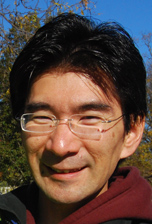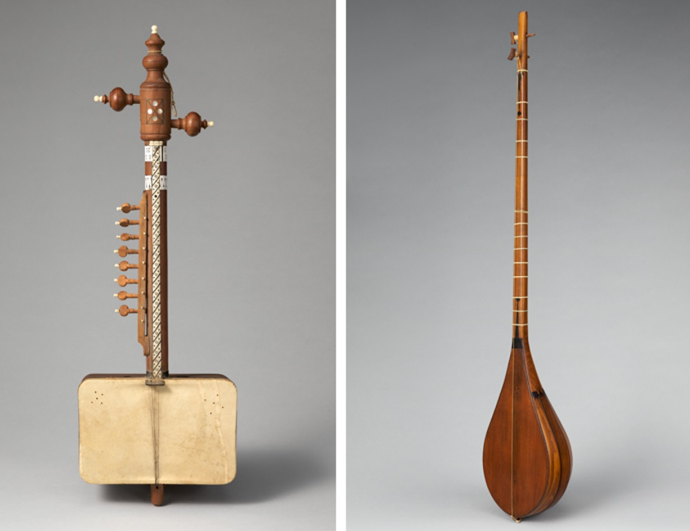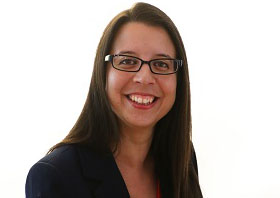Masami Imai, chair and professor of economics, professor of East Asian studies, presented a paper at the 19th Annual International Banking Conference held at the Federal Reserve Bank of Chicago on Nov. 4. This year’s theme was Achieving Financial Stability: Challenges to Prudential Regulation, giving Imai the opportunity to speak on “Japan’s Regulatory Response to Banking Problems.” At the 12th Annual Workshop on Macroeconomics Research at Liberal Arts Colleges, held at Williams College in August, and at the Japanese Economic Association Meeting held at Waseda University College in Tokyo, Japan in September, Imai discussed “The Effects of Ethnic Chinese Minority on Vietnam’s Regional…
As part of the “A Vanished Port” series, Richard Grossman, professor of economics, presented a lecture titled, “How Rich Was Rich,” at the Russell Library in Middletown, Conn. on Nov. 9. The lecture came as part of a newly opened exhibit at the Middlesex County Historical Society. “A Vanished Port: Middletown and the Caribbean, 1750-1824,” takes objects and documents from the time period to illustrate the “culture of prosperity that grew from Middletown’s trade relationships with the slave-worked sugar plantations of the English Caribbean.” Using Middletown merchant, Richard Alsop, who died in 1776 with a huge estate that included property, possessions,…
Wesleyan University, 1910-1970: Academic Ambition and Middle-Class America, by David Potts ’60 is the winner of the 2016 Homer D. Babbidge Jr. Award “for the best study of a significant aspect of Connecticut history.” The book, published by Wesleyan University Press in 2015, has received critical acclaim from a variety of sources including, History of Education Quarterly and Connecticut History Review. Reviews in American History states, “Wesleyan University, 1910-1970 is one of the strongest institutional histories of an American college or university and covers in vivid detail every conceivable aspect of the institution, from finances and board priorities, to professors’ abilities and student…
Mark Slobin, professor of music, professor of American studies, emeritus, recently donated his collection of Afghani musical instruments to The Met museum. From 1967 to 1972, Slobin traveled to Afghanistan to complete dissertation fieldwork on local folk music of the northern region. Along the way he collected, what are now, extremely rare instruments including, polished river stones, sometimes used as castanets; end-blown shepherds’ flutes; two large fretted lutes known as dutar; both Uzbek and Tajik damburas; and a plethora of other instruments. His time in Afghanistan was marked by many memorable encounters, such as the “rare, hidden tradition of pre-Islamic shamanism, in…
Mike Robinson, assistant professor of psychology, is a co-author of a paper titled “The impact of junk-food diet during development on ‘wanting’ and ‘liking’.” The paper was recently published in The Behavioral Brain Research Journal. His co-authors include Wesleyan alumni Ellen Nacha Lesser ’15, Aime Arroyo-Ramirez ‘16, and Sarah Jingyi Mi ’16. The research looked at the developmental impacts of a chronic junk-food diet throughout development and how it blunts pleasure and affects motivation. The study found that chronic exposure to a junk-food diet resulted in large individual differences in weight gain (gainers and non-gainers) despite resulting in stunted growth as compared to chow-fed…
Kali Gross, professor of African American studies, details the 1887 crime of the disembodied torso found near a pond outside Philadelphia, and the subsequent, scandal-driven trial of Hannah Mary Tabbs and George Wilson, in her most recent book Hannah Mary Tabbs and the Disembodied Torso: A Tale of Race, Sex, and Violence in America, published February 2, 2016. Gross explains in an editorial published on her website, her use of “detectives' notes, trial and prison records, local newspapers, and other archival documents to reconstruct this ghastly who-done-it true crime in all its scandalous detail and in doing so, gives the…
Melanie Khamis, assistant professor of economics, assistant professor of Latin American studies, attended the Informality and Development Conference in Honor of Elinor Ostrom held at Indiana University on Oct. 22-23. Khamis, co-authored two papers presented at the conference including “Migration and the Informal Sector,” and “Risk Attitudes, Informal Employment and Wages: Evidence from a Transition Country." The conference was organized by faculty from Cornell University and Indiana University. It centered around the study of informality, the part of an economy that is neither taxed not monitored by any form of government—a subject area where Professor Ostrom, the first and only woman to have won…
Erika Taylor, associate professor of chemistry, is a co-author of a paper titled, “Methyl transfer by substrate signaling from a knotted protein fold,” published in the August 2016 issue of the Nature Structural & Molecular Biology newsletter. The paper describes the protein TrmD, an enzyme that catalyzes tRNA modification, but unlike most proteins, TrmD has an "interesting knotted configuration, which is not common," Taylor said. The paper demonstrates that even in proteins with knotted configurations, the internal protein movements and dynamics are important for binding, signaling and catalysis. "This is exciting because one might expect knotted proteins to be more static in…
Gina Athena Ulysse, professor of anthropology, recently contributed to the #BlackLivesMatterSyllabus, a new project by The Anthropoliteia, an online anthropology journal. Ulysse also is professor of feminist, gender and sexuality studies. One of the main goals of the project is to “mobilize anthropological work as a pedagogical exercise addressing the confluence of race, policing, and justice." In this vein, Ulysse uses her entries to analyze the film series “Race: The Power of Illusion.” As part of the Race: Are We So Different? Project created by the American Anthropological Association, the film serves as a teaching tool for Ulysse in her own…
The Wesleyan Center for the Arts was featured in The Journal of the Society of Architectural Historians (JSAH), the main U.S. peer-reviewed scholarly journal for architectural history, in an article written by Joseph Siry, the Kenan Professor of the Humanities, professor of art history. The article, titled "Roche and Dinkeloo’s Center for the Arts at Wesleyan University: Classical, Vernacular, and Modernist Architecture in the 1960s," detailed the extensive history and creative motives behind the impressive 11-building complex. From 1962, under the presidency of Victor Butterfield (in office 1943–67), Wesleyan’s trustees committed the college to develop into a small university, and in 1964 they…
Sumarsam, University Professor of Music, and Andy McGraw PhD ’05 served as co-editors for Performing Indonesia, a Smithsonian Freer Sackler online publication of 16 articles on Indonesian music, dance and drama. Topics include choral singing of Indonesian and Malaysian Borneo; learning from American schoolchildren playing Balinese gamelan; the challenges of music sustainability in Lombok, Indonesia; gong evolution and practices, "the dancing goddess;" the acoustic concept of an American gamelan; musical kinship in the transnational Balinese gamelan community; and more. In addition to serving as an editor, Sumarsam co-authored the introduction to the publication, and delivered the keynote address titled, “Dualisms…
LaNell Williams ’15, currently enrolled in the Fisk-Vanderbilt Master’s to PhD Bridge Program, was named a National Science Foundation (NSF) Graduate Research Fellow for 2016. This fellowship program not only recognizes but also supports outstanding students in NSF-supported STEM disciplines who are pursuing research-based master's and doctoral degrees at accredited U.S. institutions. With more than 17,000 applicants, Williams was one of 2,000 selected for the three-year stipend, with its professional development and international research opportunities. At the Fisk-Vanderbilt program, which aims to increase the number of underrepresented minority students engaged in PhD-level STEM research, Williams is focusing her research on the…





